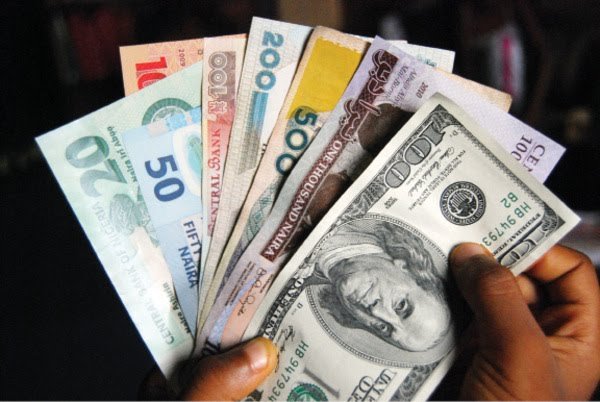The Nigerian currency, the naira, has suffered its steepest decline against the US dollar, falling to N1,552.53 per dollar on Thursday from N1,531.25 on Wednesday.
This N21.28 single-day drop marks the sharpest depreciation since March 22, underscoring growing pressure on Nigeria’s foreign exchange market.
The decline comes as global markets react to US President Donald Trump’s sweeping tariff announcement, which directly impacts US-Nigeria trade valued at $10bn.
According to Chief Executive Officer of the Centre for the Promotion of Private Enterprise, Dr. Muda Yusuf, the tariffs effectively signal the end of the African Growth and Opportunity Act (AGOA), a vital trade policy that granted Nigerian exporters preferential access to US markets.
“This could have implications for the naira exchange rate,” Yusuf warned.
The Central Bank of Nigeria (CBN) had recently reported a Net Foreign Exchange Reserve (NFER) of $23.11bn, the highest in over three years. However, this surge in reserves has done little to shield the naira from external shocks triggered by Trump’s 10 per cent baseline tariff policy.
President Trump’s tariff policy aims to establish “fair trade” and revitalize the US industrial sector.
“This is one of the most important days in American history. We will supercharge our domestic industrial base, we will pry open foreign markets, and we will break down foreign trade barriers,” he said.
The new tariff regime affects over 50 countries, including key US trade partners like China, the European Union, India, and Japan, alongside developing economies in Africa, Asia, and Latin America. Nigeria, Ghana, Ethiopia, and Mauritius are among the African nations facing revised US tariffs.
Nigeria’s trade with the US totaled N31.1tn between 2015 and 2024, with imports accounting for N16.4tn—equivalent to 8.7 per cent of Nigeria’s global exports.
Despite these figures, Nigeria’s exports to the US have seen a decline in recent years, largely due to reduced American demand for Nigerian crude oil.



